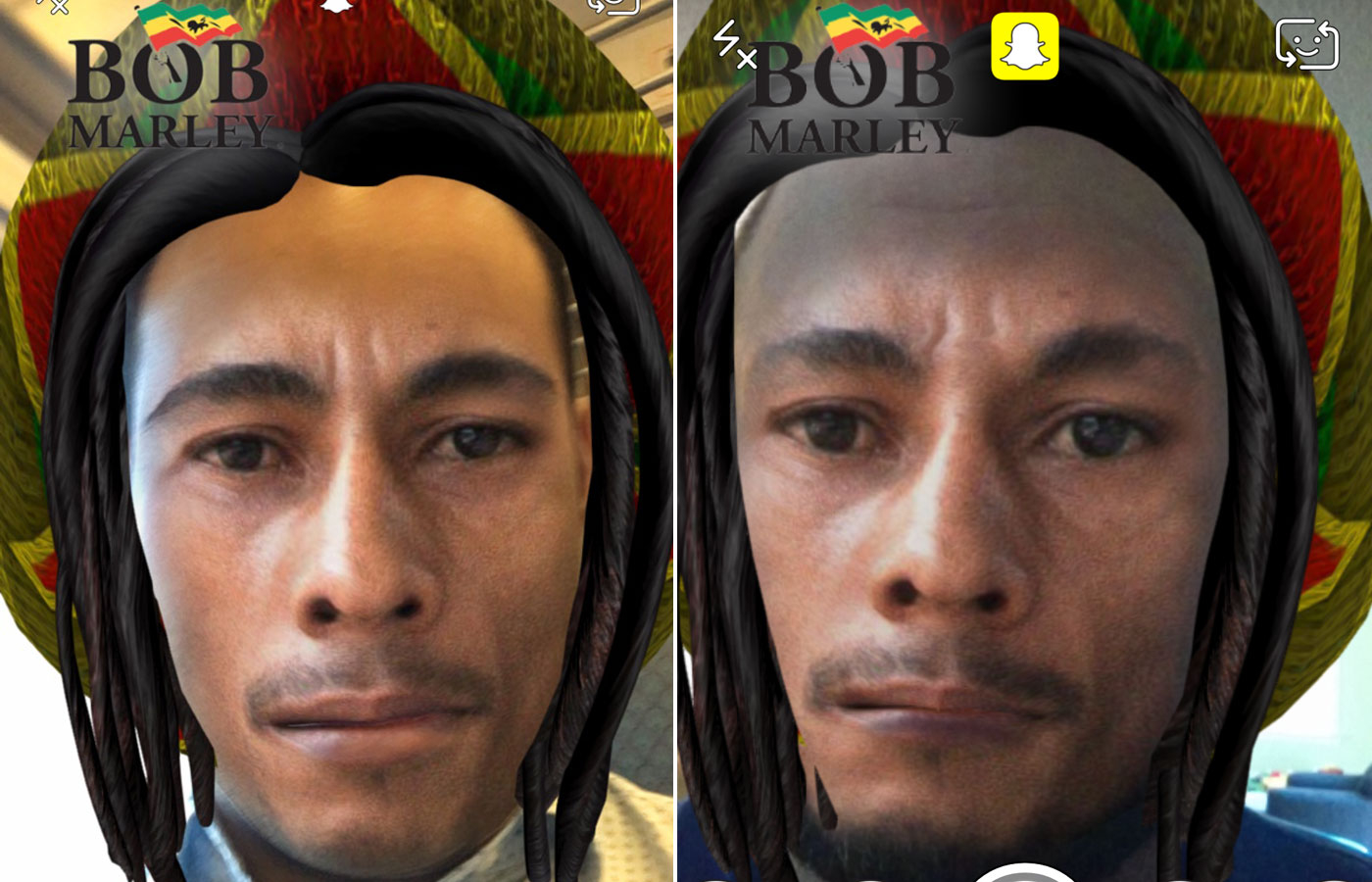Snap Chat Filters Are Stupid Funny
I discovered Snapchat just a few months ago, and even though I'm much older than most of its users, I fell in love with it. Despite its obtuse interface and obscure controls, I was charmed by the whole idea of churning out quick-and-dirty ephemeral content. Because photos and videos only last 24 hours, I felt less pressure to post perfectly polished selfies and was more at ease with being myself. Plus, I liked the fun emojis, stickers and quirky selfie lenses. But Snapchat took it a step too far recently with a couple of camera filters that weren't as funny as they were racist. This has prompted me to drop Snapchat entirely.
If you haven't been paying attention, Snapchat recently released a new selfie lens that it says was "anime-inspired." But it made your eyes look squinty and slanted. And if you had your mouth open, it would also appear as if you had buck teeth. In short, it turned you into a racist Asian caricature.
As an Asian myself, this hit me hard. As I said, I'd always liked those selfie lenses. I even defended them to some of my colleagues who thought they were dumb. They were fun, and I liked that you could trigger actions like surfing or explosions by opening your mouth or raising your eyebrows. So to have one of these selfie lenses glibly make fun of my facial features and my race was difficult to take.
.@Snapchat wanna tell me why u thought this yellowface was ok?? pic.twitter.com/sgpW4AFPsE
— grace (@tequilafunrise) Aug. 9, 2016
Also, the notion that the filter was supposed to make your face look like "anime" sounds like bullshit. No, it doesn't. Anime is generally known for large, soulful eyes and tiny mouths, not slanted eyes and enlarged teeth.
The filter is no longer available, but it doesn't appear that it was removed due to complaints. In a statement, the company said, "This anime-inspired lens has already expired, and won't be put back into circulation. Lenses are meant to be playful and never to offend." This struck me as an excuse rather than an apology.
This isn't the first time the company has shown insensitivity. On April 20th, Snapchat featured a Bob Marley selfie lens that let its users superimpose the late singer's face on their own. That basically let anyone put on digital blackface. Plus, many complained it was cultural appropriation and that it reduced the reggae legend to yet another stoner meme.

This also received plenty of backlash, but the company didn't apologize for the insensitivity then either. Instead, it said it worked with the Marley estate to come up with the filter, as if that absolved it from any responsibility. Snapchat said in a statement, "The lens we launched today was created in partnership with the Bob Marley Estate, and gives people a new way to share their appreciation for Bob Marley and his music. Millions of Snapchatters have enjoyed Bob Marley's music, and we respect his life and achievements."
Though it wasn't racist, Snapchat also had a "nerd" face filter earlier this year that hit a little too close to home. Thick-rimmed glasses and braces aren't so funny when you actually have them in real life.
when you think you look funny with the nerd filter on snapchat but then you realize you are the nerd filter🙁🙁 pic.twitter.com/p3KfFeh8VW
— lindsee batler (@_llindseyy) July 1, 2016
Whether or not the lenses were intentionally offensive, what bothers me with these incidents is Snapchat's response. There was no apology, no promise to do better and no acknowledgement at all that the lenses could be perceived as offensive. It makes me wonder if its face filters go through any kind of QA check and if there are any staffers who are people of color, who are probably more likely to spot such gaffes. Unfortunately, unlike a lot of other tech companies, Snapchat isn't willing to reveal its diversity numbers, which is a problem in and of itself.
But even if Snapchat's staff is 100 percent white, how did not a single one of them see this in action and think, "Hey, are we sure about this?" Could no one simply show it to an Asian friend and ask if it was OK? Did no one think to show the Bob Marley filter to a few black people and ask them if it was appropriate? The tone deafness on display is astounding.
Plus, Snapchat actually has competition now. Instagram recently released its own Snapchat copycat with Stories, which also lets you post photos and videos that last for 24 hours. It doesn't have the same stickers as Snapchat, but it does let you doodle and write over photos. I wasn't too big a fan of Instagram Stories at first -- mostly because my friends who use Snapchat aren't on Instagram -- but I've slowly come around to it. It taps into that same spirit of spontaneity that Snapchat does, but with a much larger and established following, at least for me.
And since Snapchat can't seem to figure out that racist filters are not OK, I have zero reason to stick around. Goodbye, Snapchat. It's been a fun few months, but I'm ready to let you expire, just like your filters.
All products recommended by Engadget are selected by our editorial team, independent of our parent company. Some of our stories include affiliate links. If you buy something through one of these links, we may earn an affiliate commission.
Source: https://www.engadget.com/2016-08-11-hey-snapchat-enough-is-enough.html
0 Response to "Snap Chat Filters Are Stupid Funny"
Enviar um comentário